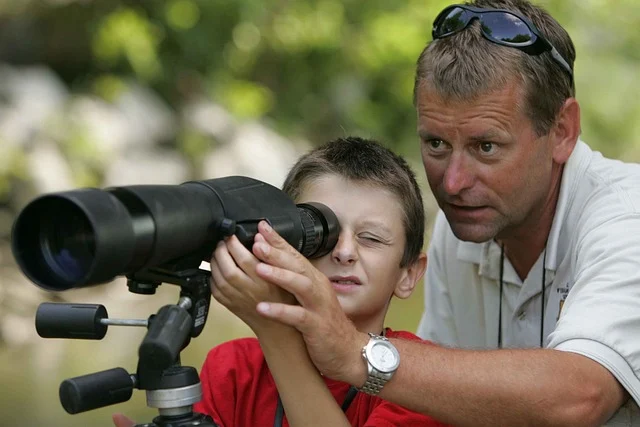Whether you're a hunter, astronomer, or wildlife enthusiast, you might want to try a spotting range. While binoculars can be useful, the detection range can give you better magnification. Essentially, these scopes are designed to operate over longer distances. If you want to buy one, we recommend that you consider some important aspects and features. Continue reading.
Objective diameter
For better image quality, we recommend that you consider using a scope equipped with a larger objective. This is especially true if you want more detail at higher magnifications. However, you should keep in mind that the lens must be of high quality. If it is not high quality, you may not be able to enjoy high picture quality. Therefore, we recommend that you purchase a quality product. Lens size should not be your only factor when making a purchasing decision.
Close-up
Close-up is very important. This shouldn't be a factor, according to some users, but you should focus as close as 20 feet or less, especially if you also want to use the camera.
Eye Pain Relief
What is Eye Pain Relief? In fact, it is the distance between your eyes and the range from which you can see the FOV.In general, we recommend at least 14mm eye drops for the best vision. If you wear thicker glasses, we recommend choosing a higher number.
Tripod
At higher magnifications, you need to keep your hands from shaking or you won't be able to get a clearer image. To keep the viewfinder more stable, we recommend trying out a tripod. For lower magnifications, you can use a monopod or a shoulder strap, but we can't talk about higher magnifications. Make sure the ride is bigger and heavier.
Waterproof quality
You don't need to invest in a waterproof lens, but you're better off choosing one that won't be easily damaged by water. In fact, the gaskets of these glasses help protect against water, dust, and dirt. This way your glasses will last longer.
For bird watching, we recommend using a device with a magnification of 20x to 40x. If you go over 40x, be aware that the FOV will be very narrow, which would be impractical or realistic. In addition, the image will be blurred at a distance. Also, you'll have to deal with heatwave issues at this distance.
For bird watching at sunrise or sunset, we recommend choosing a device with a wider lens. You should buy one with a 77mm lens at 82m. However, you should keep in mind that larger lenses add to the weight of the scope. So you may want to be prepared to lift heavy equipment if you are looking for larger targets.

